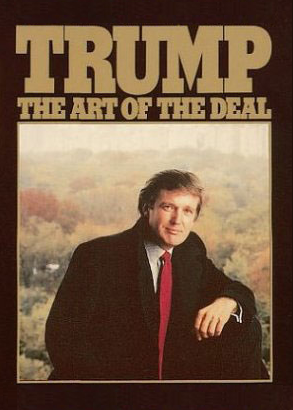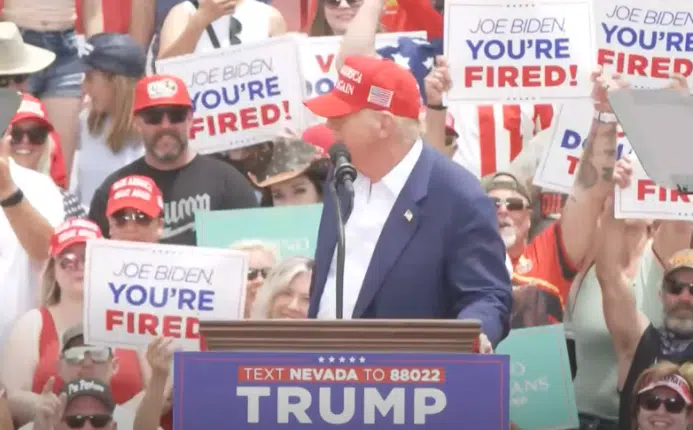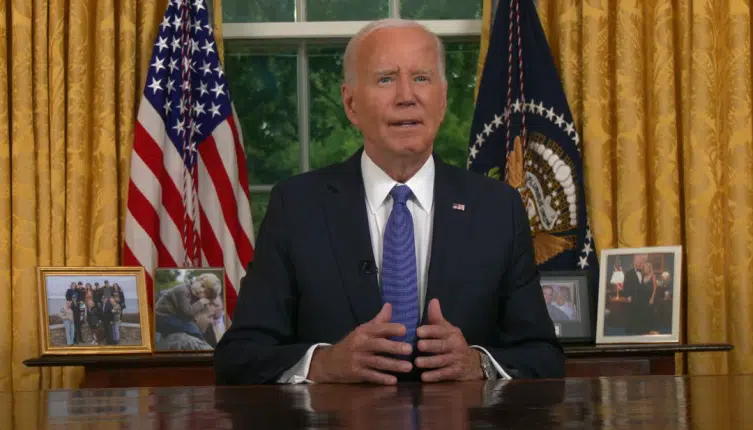“[Trump could] probably work with Congress, because he’s, you know, he’s got the right personality and he’s kind of a deal-maker.”
That was former Senate Majority Leader and failed 1996 Republican presidential nominee Bob Dole all but endorsing Donald Trump in the Republican primary over Texas Sen. Ted Cruz, questioning Cruz’ ability to work with Congress. “Nobody likes him,” Dole said of Cruz.
Poor ol’ Bob Dole. Not only does he think a candidate who intends to deport 11 million illegal aliens, build a wall on the southern border and temporarily suspend Muslim immigration will want to deal with the likes of Chuck Schumer, Nancy Pelosi and Paul Ryan.
But he also naively believes there is anybody left in the country that even likes Congress or the vapid political establishment it truly represents.
Let’s be clear. Nobody likes Congress. Well, almost nobody. Just 16 percent of Americans approve of Congress’ handling of its job, according to Gallup. 80 percent disapprove.
80 percent.
So perhaps Dole, who spent 35 years in Congress, including 27 years in the Senate, imagines in the magical fairy land that is inside the Beltway that his statement somehow hurts Cruz politically, and helps Trump. It does neither.
In fact, in the current political climate — where again, 80 percent of people disapprove of Congress — getting a former Senate Majority Leader’s nod is akin to the kiss of death. For, it wraps Trump in the very establishment cloth he began his campaign by setting ablaze.
Moreover, it tarnishes Trump’s brand as an outsider. He must harbor no illusions. Trump’s battle against illegal immigration and bad trade deals is not Congress’ agenda. Nor is it the establishment’s agenda. They don’t like those things.
If he happens to prevail in the nomination and general election in November, in order to get a deal from Congress, Trump — or any other prospective president for that matter whether it be Cruz, Clinton, or Sanders— has to be willing to say, “No deal.” And loudly.
Perhaps Bob Dole thinks Congress will be able to somehow charm Trump into making the deals it wants. But we suspect Trump probably knows better.
After all, in Trump’s book, “The Art of the Deal,” he states, “The best thing you can do is deal from strength, and leverage is the biggest strength you can have. Leverage is having something the other guy wants. Or better yet, needs. Or best of all, simply can’t do without.”
Trump adds, “Leverage: don’t make deals without it.”
And when it comes to leveraging Congress, a president has no bigger carrot than his legislation signing pen, and no bigger stick than the veto pen.
Specifically, when, not if, Congress delivers an immigration bill to Trump’s desk that rejects his fundamental stance against illegal immigration, he has to be willing to veto it, and then have that veto sustained by at least one-third of one chamber of Congress. Otherwise, he will lose.
When, not if, Congress delivers appropriations bills and continuing resolutions to his desk full of corporatist favors, hundreds of billions of dollars of new debt and millions of dollars of handouts to radical environmental organizations and other undeserving, unaccountable foundations, he has to be willing to veto it, and sustain that veto with at least one-third of one chamber of Congress.
You get the point. A president can successfully deal with a hostile Congress — but only if he or she confronts Congress. And prevails.
How else does anyone think, for instance, Ronald Reagan got his tax cuts and defense appropriations measures through Congress? He vetoed legislation and prevailed to varying degrees through 8 government shutdowns.
Any candidate who believes Congress is or ever will be a friend needs to just quit the race now. Our system of government was built with the separation of powers for a reason. It was to limit the powers of the president in particular. But that does not mean a president is powerless in the face of an unreceptive legislative branch.
The current occupant of the White House, President Barack Obama, gets around it by issuing executive orders and expansive regulations. But his strategy oversteps and overreaches, undermining confidence and trust in government by damaging constitutional limited government, the separation of powers and the rule of law.
The next president, if he or she wishes to master Washington, D.C. will succeed by doing exactly what Trump called for in “The Art of the Deal,” and that is by denying Congress the one thing it “simply can’t do without” — and that is its precious spending bills.
And to deny the two-thirds majorities Congress needs in both houses to override vetoes. Yes, a president will need some allies in Congress — approximately one-third. But before any deals can be made, the credible threat of saying “no deal” is a necessary prerequisite.
Robert Romano is the senior editor of Americans for Limited Government.







